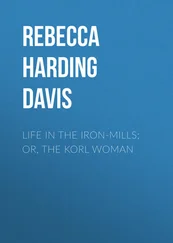When (v5) - Rebecca Stead
Здесь есть возможность читать онлайн «When (v5) - Rebecca Stead» весь текст электронной книги совершенно бесплатно (целиком полную версию без сокращений). В некоторых случаях можно слушать аудио, скачать через торрент в формате fb2 и присутствует краткое содержание. Год выпуска: 2009, ISBN: 2009, Издательство: a cognizant original v5 release october 23 2010, Жанр: Старинная литература, на английском языке. Описание произведения, (предисловие) а так же отзывы посетителей доступны на портале библиотеки ЛибКат.
- Название:Rebecca Stead
- Автор:
- Издательство:a cognizant original v5 release october 23 2010
- Жанр:
- Год:2009
- ISBN:9780375892691
- Рейтинг книги:4 / 5. Голосов: 1
-
Избранное:Добавить в избранное
- Отзывы:
-
Ваша оценка:
- 80
- 1
- 2
- 3
- 4
- 5
Rebecca Stead: краткое содержание, описание и аннотация
Предлагаем к чтению аннотацию, описание, краткое содержание или предисловие (зависит от того, что написал сам автор книги «Rebecca Stead»). Если вы не нашли необходимую информацию о книге — напишите в комментариях, мы постараемся отыскать её.
Rebecca Stead — читать онлайн бесплатно полную книгу (весь текст) целиком
Ниже представлен текст книги, разбитый по страницам. Система сохранения места последней прочитанной страницы, позволяет с удобством читать онлайн бесплатно книгу «Rebecca Stead», без необходимости каждый раз заново искать на чём Вы остановились. Поставьте закладку, и сможете в любой момент перейти на страницу, на которой закончили чтение.
Интервал:
Закладка:
“You think?” I said. “What about the creepy cartoon bank?”
She shrugged. “My dad collects stuff like that too. Lots of people do.”
It turned out that Jimmy didn’t intend to pay us any money. Instead, he let us each pick a soda from the refrigerator and make a sandwich from the stuff in the setup tray on the counter. The setup tray was just lettuce, tomato, onions, American cheese, Swiss cheese, and pickles. The other food—sliced turkey, ham, roast beef, and salami, a big tub of tuna salad, and meatballs in a plug-in pot—was off-limits.
Every day, we took our cheese sandwiches back to school and ate them at our desks during silent reading period. I sat next to Alice Evans, who never complained about anything, and Annemarie sat next to Jay Stringer, who was oblivious to the world when he was reading, but Colin sat next to Julia.
“Mr. Tompkin!” Julia said on the Friday of our first week at Jimmy’s. “Colin is eating his lunch at his desk again . And I despise the smell of pickles.”
Mr. Tompkin looked up over the top of his book, adjusted his toothpick, and said, “Try breathing through your mouth.”
Things You Don’t Forget
Our apartment door was unlocked when I got home from school that Friday, which was strange. More than strange, actually—it had never happened before. But I figured Mom had probably just forgotten to lock it when she left for work that morning. It sounds stupid now that I say it, but that’s what I thought.
Once I was inside, though, I had this sudden fear that I wasn’t alone in the apartment. I dropped my knapsack in the hall and ran down to Sal’s. He came to the door but opened it just enough to squeeze his body into the crack.
“My door was unlocked,” I said. “Doesn’t that seem weird?”
“Yeah,” he said. “Maybe you forgot to lock it?” He stayed there wedged into the doorway. Definitely not inviting me in.
“Yeah, probably.” I could hear the television behind him, blaring a commercial.
“Okay.” He looked up at the ceiling behind me.
I felt like an idiot. “Okay. See you later.”
I went back upstairs, made myself a bowl of Cheerios with an inch of sugar on top, and turned on the television. Mom walked in around six.
“You forgot to lock the door this morning,” I said.
“What? No, I didn’t.”
“Well, it wasn’t locked when I got home today.”
“It wasn’t?” She started walking from room to room, opening drawers and closet doors, and I followed her.
“It can’t be,” she said. “I would never forget to lock the door.”
Nothing seemed out of place. She got to the kitchen and stopped. “I guess I don’t specifically remember locking it, but I know I would never not lock it….”
She filled the spaghetti pot with water, and we talked about other stuff while she set the table and I peeled some carrots, but every once in a while she would interrupt herself to say, “How could I have forgotten to lock the door?”
We were halfway through dinner when she suddenly stood up and walked out of the apartment.
“Mom?”
I found her standing in the stairwell, peering into the nozzle of the fire hose. “I knew it,” she said. “I would never forget to lock the door. Never.”
The key was gone. We searched every room all over again but couldn’t find a single thing missing.
“It makes no sense,” Mom said, standing over her jewelry box and staring down at the gold bracelets that had belonged to her mother. “Why steal the key, unlock the door, and not take anything?”
That was Friday afternoon. I found your first note Monday morning.
The First Note
Your first note was written in tiny words on a little square of stiff paper that felt like it had once gotten wet. I was packing my knapsack for school when I noticed it sticking out of my library book—which was about a village of squirrels, or maybe it was mice. I had not bothered to read it.
M,
This is hard. Harder than I expected, even with your help. But I have been practicing, and my preparations go well. I am coming to save your friend’s life, and my own.
I ask two favors.
First, you must write me a letter.
Second, please remember to mention the location of your house key.
The trip is a difficult one. I will not be myself when I reach you.
I was freaked. Mom was freaked. She took the morning off and had the locks changed, even though she said that “M” could be anyone, that this had nothing to do with our missing key, and that the note could have been stuck in that book by anyone, years ago probably, and we’d never know why.
“Isn’t it weird, though?” I said. “Our key was just stolen on Friday, and now on Monday we find a note asking where our key is?”
“It is weird,” Mom said. She put her hands on her hips. “But if you think about it, one thing really can’t have anything to do with the other. Someone with the key wouldn’t have to ask where the key is. It makes no sense.”
She was right, of course. It was backward. But somewhere in my head a tiny bell started ringing. I didn’t even notice it at first.
Things on a Slant
Our second week, Jimmy said we could start serving customers.
“But first you have to learn the V-cut,” he told us. “Very important.” Except he said “Velly important,” stretched his eyelids back with two fingers, and bowed down low—it was the classic fake-Chinese act. I had never seen a grown-up do it before. If Mom had been there, she would have whacked him on the head with a plastic tray.
“The V-what?” Colin said.
The V-cut was Jimmy’s special way of cutting the sandwich rolls. “Always a forty-five-degree angle,” he said. He was very serious about it, sawing down one side of the roll and then carefully sliding the knife out and inserting it in the other side.
The top of the bread was supposed to lift off in a perfect “V,” which was why Jimmy called it a V-cut. He gave us each a roll and watched while we tried it. Annemarie’s was perfect. Colin’s was passable. Mine was a disaster. When I lifted the top off, flaps of bread guts were hanging down, and Jimmy said it looked “unappealing.”
“You can use that for your own sandwich,” he said, making a face at my shredded roll. “Try again tomorrow.”
So Annemarie and Colin got to put on aprons, stand behind the counter, and help customers while I counted the bread order in the back and went to the A&P for napkins. Annemarie said later that Jimmy should talk, that he looked “unappealing” in his stretched-out white T-shirt with yellow underarm stains. That made me feel a little better, but not much.
As soon as Colin got his apron on, Jimmy started calling him “lady”—“Hey, lady, get some more mayo on there.” “Hey, lady, pass me those trays.” Colin just laughed, which is how Colin is.
Every day that week, I cut my roll as soon as I got to the store, and every day Jimmy shook his head no. Colin and Annemarie worked together behind the counter—Jimmy had started calling them the counter couple and making disgusting kissing noises at them when he walked by, which made Annemarie turn red, while Colin just smiled like a goofball.
Jimmy said that while I practiced my V-cut I could be in charge of hot chocolate. He used those Swiss Miss instant hot chocolate packets where you just add water. But no one ever ordered it. And I don’t think he really even looked at my rolls after the first couple of days. Anyway, they were only getting worse.
White Things
The first time I brought Annemarie home to our apartment after school, I wished for two things. First, I wished that the boys wouldn’t be in front of the garage. They’d just recently started saying things to me, different things, some of which included the words “sweet” and “baby.” Mom said this happened to girls after a certain age, and that what the boys wanted was a reaction, any kind of reaction.
Читать дальшеИнтервал:
Закладка:
Похожие книги на «Rebecca Stead»
Представляем Вашему вниманию похожие книги на «Rebecca Stead» списком для выбора. Мы отобрали схожую по названию и смыслу литературу в надежде предоставить читателям больше вариантов отыскать новые, интересные, ещё непрочитанные произведения.
Обсуждение, отзывы о книге «Rebecca Stead» и просто собственные мнения читателей. Оставьте ваши комментарии, напишите, что Вы думаете о произведении, его смысле или главных героях. Укажите что конкретно понравилось, а что нет, и почему Вы так считаете.












